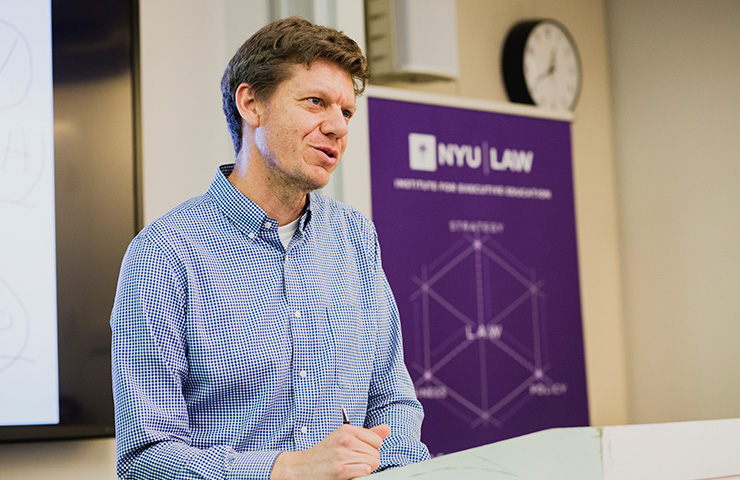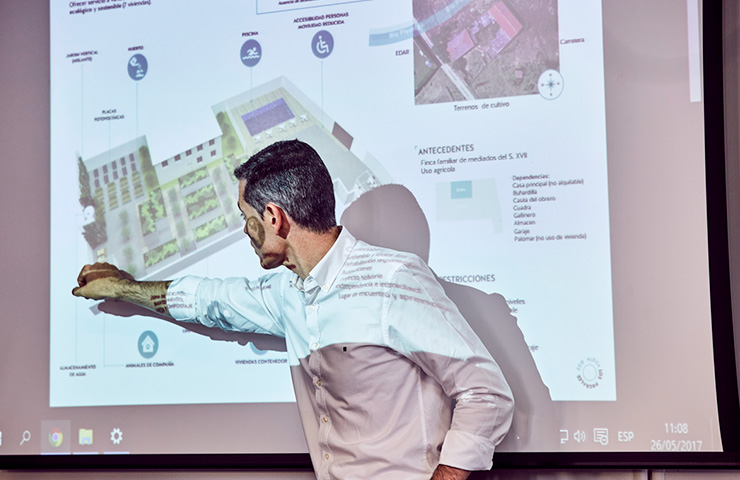01/01/2025
Join us as we examine negotiation skills for lawyers and how to break into international dispute resolution.
Are you hardwired to work in International Dispute Resolution? We’re going to take a look at what this dynamic field is all about and show you how IE Law School’s unique Master of Laws (LL.M.) takes earning an LL.M. to the next level. This program offers three specialization tracks to set you apart from the competition: International Business Law, International Dispute Resolution, and Intellectual Property and Technology Law. Professors at IE Law School are top practitioners in their field, working in top law firms and expanding their industry expertise to share with their students every day.
One of these inspiring professors is Santiago Rodríguez Senior, adjunct professor of International Dispute Resolution.

Alongside his work as a professor, he is also a Senior Associate at Uría Menéndez, specialized in International Arbitration.
We had the chance to chat with Santiago Rodríguez Senior about careers in International Dispute Resolution. Read on as we delve into essential skills for arbitration lawyers, international dispute resolution skills and Santiago’s advice to students hoping to break into the sector.
What is international dispute resolution?
So, what is International Dispute Resolution? In short, it’s a means of settling disagreements between several countries or international parties. It’s also a key aspect of legal practice and drives one of the most exciting areas of work. At IE Law School, we focus on negotiation skills for international lawyers to ensure they’re ready to thrive on the global stage.
But what are the main types of international dispute resolution? They fall into four categories: Negotiation, Mediation, Arbitration and Adjudication. Negotiation and Mediation are both peaceful ways to resolve a dispute, whereas Arbritration uses a private arbitrator to decide the dispute in court. Adjudication is a method whereby two parties settle a dispute together. The main difference between mediation and arbitration in cross-border cases is that arbitration follows a much more formal process. This culminates in a binding decision for both parties. Mediation, on the other hand, is a facilitated settlement which is non-binding.
But why is international dispute resolution important for global businesses? Well, it’s an effective way of preventing international trade disruptions. It’s also a fair way to serve commercial disputes with legal action. And it’s an extremely dynamic field to work in.
Kick-starting a dynamic lawyer career in International Dispute Resolution
In Santiago’s words, international arbitration is “dispute resolution that involves international parties.” However, there are many different mechanisms within dispute resolution. These include negotiations, mediation, conciliation and arbitration—and each of these has a different nature.
For example, Santiago’s work varies depending on the stage of the dispute. He may need to file a statement, claim or lawsuit, or respond to opposing counsel’s briefs. Santiago may also have to prepare for hearings or examine witnesses. His day-to-day role is dynamic and presents many opportunities.
It can very much resemble court proceedings, however it also has that international private nature that commercial arbitration has, which is the sort of arbitration I specialize in. Different cases have a different set of rules of procedure.

The Master of Laws (LL.M.) is designed around real-life experience, especially as putting theory to practice is one of the best ways to learn.
With this in mind, to students passionate about a career in international arbitration, Santiago suggests “getting involved in moot courts as much as possible. There are many different international moot courts with competitions for international arbitration, which is a great stepping stone for students to get involved in the international arbitration world.”
Study at a top law school for dispute resolution
Santiago goes on to explain what sets this program apart from the rest. He concludes by offering advice for future students. “Given that law firms tend to look at candidates with academic experience in international arbitration when hiring junior associates, taking classes in international arbitration as part of the Master of Laws (LL.M.) is a plus too.”
Be curious—be intellectually curious. Arbitration is a very dynamic area and practice of law. It forces you to learn a lot about many different topics, so if you’re intellectually curious, it’s an ideal world to work in.
The International Dispute Resolution specialization track wilo expand your skills to a more niche focus within law.

Santiago Rodríguez Senior shared some great tips to make that first venture into international dispute resolution as beneficial as possible. Want more career advice? IE Talent & Careers is on hand to talk about your future career goals and how to achieve them.








